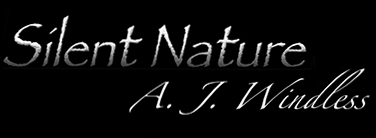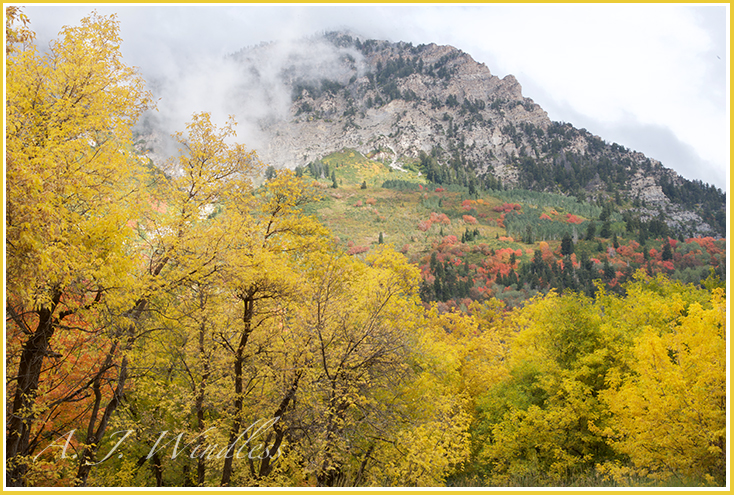| |
|
If you have looked at very many of my photos, you might have
asked, "What makes his photos so much better than the average
amateur?" And some of you might want to know what you can
do to take photos as impressive as this one. This image, for
example, is not something I just happened to see and then, like
child's play, I lifted a "point and shoot camera" pressed the
button. Far from it, the images you see on this website are not
snap shots.
This area is a place I have been coming to for 30 years. While I
lived in Utah I came here several times every fall, and since I
have moved to Thailand I still return for multiple more visits
every year or two. I am very familiar with the area and have
scouted out the views and angles all over this mountainside. I
know what pictures I have taken in the past, and I continue to
look for new ideas. I sat my camera on its tripod and watched
this scene for an hour, constantly snapping frames with
different shadows and light as the clouds moved through,
occasionally opening up enough to reveal the mountain face. I
wanted to see the mountain face, but I also wanted to have
clouds drifting by, which meant they would have to be to the far
left, so as not to obsure the shape of the mountain where it
tapered off. Then I still needed the right light on the trees,
both in the foreground, and on the side of the hill. Once I
returned home, I sorted through all of those images and decided
which ones carried the best potential to finish my work.
My camera captures a lot more information than what you see on a
monitor, but your monitor selects a very narrow piece of that
work to display to you. Before digitalization photographers like
Ansel Adams had to develop their prints in darkrooms with
fluids, and if some areas of the film were too bright or too
dark, they had to block the light from hitting parts of that
print so that the final exposure would even out more. Working
with digital images, I do essentially the same thing with
Photoshop. I spent over an hour bringing up the light in the
shadowed areas and lowering the light in the areas that looked
washed out. Other than correctiing the amount of exposure in
those different areas, I have done nothing to adjust, enhance,
or improve the color in this image. The colors you see are very
real. |
|
|
|

